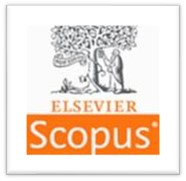Document Type
Article
Abstract
Introduction: The patriarchal Afghan society has thousands of years of history. For most parts it has been governed by its tribal systems. The society has systematically evolved with its thousands of years old tradition, which has resulted in the subjugation of women. Although it is widely assumed that the midwifery education program (MEP) has contributed to female empowerment, no formal investigation has been carried out that explores the actual impact of MEP on the status of women midwifery graduates. Therefore, this study systematically explores the trickle down effects of MEP on women’s empowerment.
Methodology:
Design: Exploratory qualitative study
Study sites: Purposively selected to represent a range of contexts in Afghanistan: Kabul, Parwan, Paktia, Bamyan and Badakhshan.
Study Participants: Graduates of the midwifery education program and key informants from the Ministry of Public Health, Community – based Midwifery Education (CME) implementers, donors, and the midwifery association.
Methods: 9 In-depth Interviews (IDIs), 9 Key Informant Interviews (KIIs), and 4 Focus Group Discussions (FGDs), with photo elicitations, were conducted.
Findings: According to the study respondents, empowered women are those who are well educated, can work and earn an income, are fully aware of their rights and can take part in the nation building processes. The study demonstrated, in particular, the impact of midwifery education on women’s empowerment at various levels i.e. individual, family, and society at large.
Conclusion: The midwifery profession, being the most acceptable profession for women in a conservative society like Afghanistan, has empowered women in a way that they are seen as a role model for the next generation and it has created a momentum for a better future for the women in Afghanistan.
Recommended Citation
Gohar, F, Zyaee, P, & Turkmani, S. Is “Empowerment” a trickle-down effect of the Afghanistan midwifery education program?. Journal of Asian Midwives. 2015;1(2):5–16.



